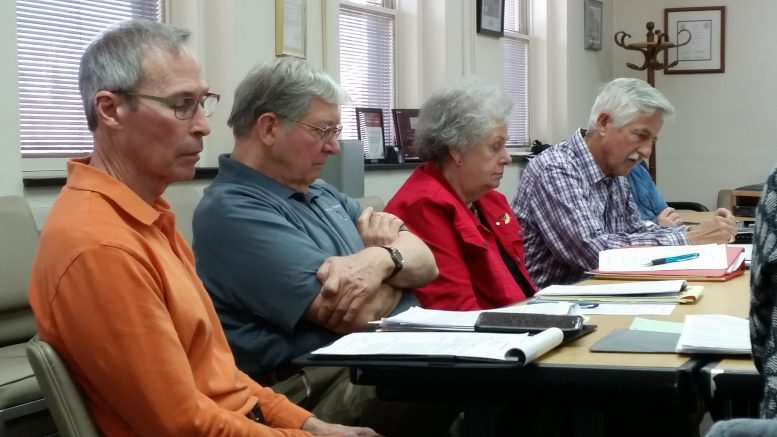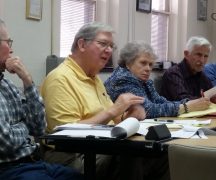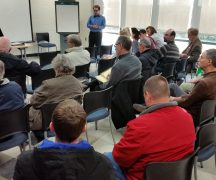By JAN LARSON McLAUGHLIN
BG Independent News
The citizens working on the Bowling Green City Charter review have narrowed down the number of changes voters will have to decide this coming November.
Rejected from the list were changes that would have likely been controversial, such as:
- Make all council terms four years. Currently, the ward candidates serve two years and the at-large serve four.
- Change council races to non-partisan. Currently, candidates must declare a party such as Democratic, Republican, Green, Libertarian or Independent.
- Make all council seats at-large. Currently, one candidate is elected from each of the four wards, and three are elected to serve at-large.
- Change the filing date to August, as is done by most area communities.
- Possibly change the ward reapportionments, based on population but keeping neighborhoods intact.
But several other proposed changes made the cut last week, and will next face City Council before they go before Bowling Green voters.
The citizen committee working on the Bowling Green City Charter review initially discussed nearly 20 possible changes to the charter during a public meeting last month. The group’s members were very aware that they must decide not only if the changes belong in the charter – but also if city voters are likely to support the proposals.
The committee voted down one more proposed change last week – this one allowing the city administrator to live outside the city, on a case-by-case basis.
“I think it sends an alarming message to citizens,” said John Fawcett, a committee member and a retired city administrator. Though a model charter used by the committee included such language, “I think the model is wrong, dead wrong,” he said.
Chet Marcin, a committee member and attorney who has worked with village governments, agreed.
“It was deeply resented if they didn’t live in the town,” he said of his experiences in other communities.
Some charter review members said this change would allow the city to hire a clearly superior candidate for the job, even if that person lived outside the city.
The change did not garner enough votes to proceed to City Council.
Also booted before last week’s meeting was a proposed change allowing non-city residents to serve on the Board of Public Utilities.
Following are some charter changes that did make the cut:
- Council vacancies. Currently, a council replacement stays in office the balance of the unexpired term. That means someone appointed to the position could potentially stay in the seat for nearly four years. That may be changed so the position goes on the ballot sooner.
- Creation of departments. It was suggested that the planning office be added to the list of city departments. “Planning has not worked well in the city over the last 40 years,” said Les Barber, a committee member.
- Civil service commission. Currently, the city considers the top three candidates for civil service positions. It was suggested that number be expanded to five, since sometimes the best candidates don’t score among the highest, and it would allow for more candidates to be interviewed for positions such as police and fire chiefs.
- Veterans’ credit. Currently, a job candidate automatically gets a 20 percent credit for being a veteran. It was suggested that be changed to 10 percent. Fawcett, an Army veteran, said the change would continue to recognize those who have served. However, the 20 percent is so much that a job candidate could score poorly but end up at the top.
- Charter review. It was suggested that a time limit be put on the process, such as every 10 years.
- Gender pronouns. It seemed to be agreed upon that the charter’s pronouns should be updated. But rather than putting each section of the charter on the ballot, it was decided that the update could be an administrative fix.
- Non-discrimination statement should be added to the preamble. Council will decide if this needs to go before the voters. “I don’t think we can say enough that our community does not discriminate against people,” committee member Julie Broadwell said.
These proposals will go before City Council to determine if they should appear on the November ballot.



